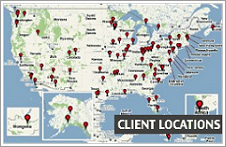
When it comes to workplace improvement, what’s better than good ideas?
Good questions.
By posing good questions on issues that matter, you can engage colleagues, deepen their thinking, and find common ground through dialogue.
You’ll even come up with better ideas, powered by all that additional brainpower and experience.
Here are seven sets of questions – waiting for a brave person (you) to start the conversation.
Engaging your mind
When was the last time you got so caught up in interesting work that you lost track of time? What were you doing? What was it — about the work itself, how you were going about it, its connection to a greater good — that made this such an engaging activity?
Seeing results
When you want to see the results of your work, what do you look at? How do you know that your effort is having a positive impact? If you could wave a wand and instantly create a more meaningful system for tracking results, what would it look like?
Tackling problems
What is your biggest challenge at work? What makes it so tough to address, and what is the great opportunity that lies within? How would you go about pursuing this opportunity if you had none of the workplace barriers that seem to exist? What creative approaches might make the difference?
Serving customers
When your customers talk about your organization behind your back, what do you think they say? Who has the highest praise, who is most critical…and why? What are they really saying? If you were in your customers’ shoes commenting on the work you do for them, what would you say?
Achieving unity and diversity
What gets greater emphasis in your workplace, unity or diversity? If it’s unity, does the pursuit of oneness prompt people to downplay their differences? If it’s diversity, does the workplace ever feel like a loose collection of conflicting styles and agendas? How can unity and diversity gain strength from each other? What can be done to achieve both of these workplace imperatives in maximum measure?
Giving and getting respect
Johann von Goethe said, “The way you see people is the way you treat them, and the way you treat them is what they become.” How does this play out in your workplace? What could be done right now to make respect one of the workplace’s greatest strengths?
Acknowledging the elephant
Is there an elephant in your workplace — a big problem or concern that no one ever talks about? Something that’s known to all and in desperate need of dialogue? If so, why is the elephant so unacknowledged? What are the risks of talking about it? What are the potential benefits?




